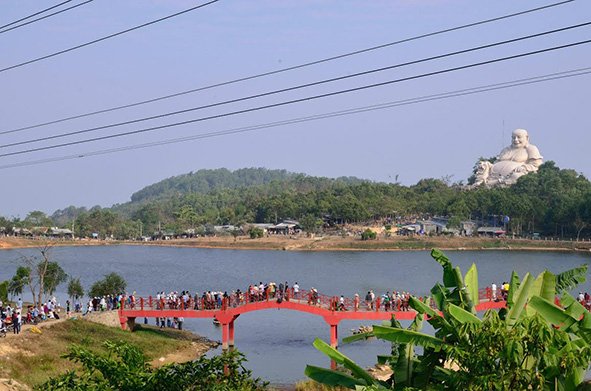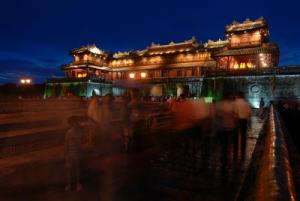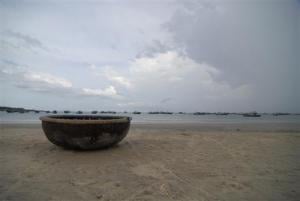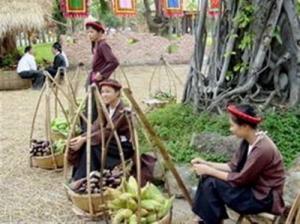Bay Nui: Beyond the Seven Mountains

Blessed with natural beauty, Bay Nui or That Son is also rich in history and culture. That is why through the years, the place has become a favourite destination for both local and foreign tourists. In literal terms, Bay Nui means “Seven Mountains.” It is situated at An Giang Province, stretching through Tri Ton and Tinh Bien Districts of Mekong Delta. It is home to different ethnic groups, including the Kinh and Khmer. Buddhism, Caodaism and Catholic are some of the religions practiced here. True to its historical and cultural richness, there are many interesting sites to visit at Bay Nui: Linh Son Co Tu Pagoda;
Phan Thanh Gian Temple; Son Tien Tu Pagoda; Ong Ho Cave, and Ong Chot Ta Cave. According to local legend, the goddess of the mountain lives in both caves and so the residents frequently go there to pray and show their respect. Moreover, the two caves also provide a stunning sight especially for first-time visitors. Aside from stories of goddesses, fairies are also said to be found at Bay Nui, making it more mysterious to the rest of the world. If one wants to try the local specialties or take them home as souvenirs, they can choose from or try all: tram fruit, dried tra fish, and thot not or water coconut.
Tram fruit is known for its purple color. Of the “Seven Mountains” Bay Nui literally means, Cam is the most popular. The Maitreya Buddha at its foot attracts a great number of tourists and pilgrims all the time to offer worship. Standing at a tall 38 meters high, the structure is also the biggest in Asia, a big tourist attraction all on its own. Ket is another famous mountain thanks to its giant rock that is shaped like a parrot. As part of its growing tourism, the residents of Bay Nui saw business opportunity in their indigenous products and historical spots.
Thus, they have learned to create thot not sugar and brocade to sell to its visitors. The heavy volume of pilgrims at the mountains also taught them to sell marketable items like incense, food, water and souvenirs which tourists willingly buy. Because of its growing tourism, Bay Nui has become flexible and open enough to embrace urbanization. Modern conveniences like electricity, cemented roads and an overall improved standard of living can be felt all over the place. But at the same time, Bay Nui has maintained its firm grip on its history and culture, preserving and even creating a one-of-a-kind oneness among its varied ethnic groups and religions.









